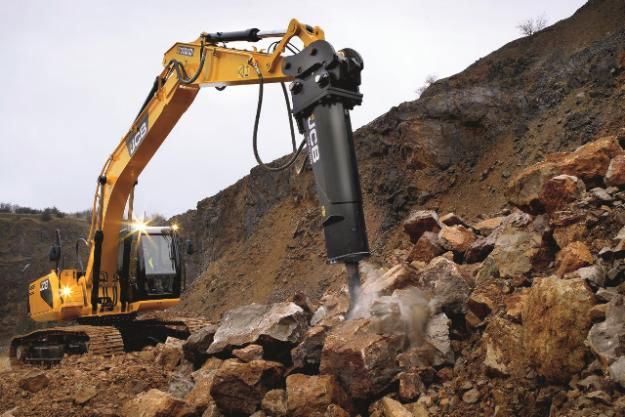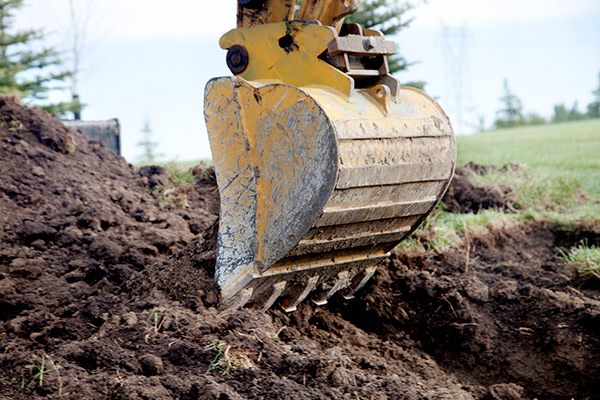Residential Excavating Ohio - Specialized Excavation for Ohio Residences
Residential Excavating Ohio - Specialized Excavation for Ohio Residences
Blog Article
Comprehensive Excavation Approaches: Mastering the Principles for Success
In the realm of construction and civil design, the significance of efficient excavation methods can not be overstated. The mindful preparation, precise execution, and precise interest to detail called for in excavation projects require an extensive technique that includes different essential elements. From initial dirt evaluation to the application of safety and security measures and regular progress monitoring, mastering these core aspects is necessary for attaining success in any type of excavation endeavor. Nevertheless, real proficiency lies not simply in comprehending these basics however in perfectly integrating them to navigate the complexities of excavation projects with skill.
Comprehending Excavation Job Planning

Effective excavation jobs are developed on the foundation of thorough and precise planning. The preliminary phase of any kind of excavation job is the planning phase, where critical choices are made that can substantially affect the outcome of the task. Throughout this stage, it is important to gather all pertinent info concerning the site, consisting of topographical studies, dirt structure, and any prospective threats that may exist. Understanding the project range, budget plan, and timeline constraints is vital for creating an extensive excavation strategy that makes certain the project's success.
One key facet of excavation job preparation is the development of a detailed timeline that details the sequence of turning points, activities, and due dates. By very carefully thinking about all these variables during the preparation phase, excavation jobs can be performed successfully and efficiently, leading to effective results - septic ohio.
Dirt Analysis and Website Analysis
Carrying out extensive dirt analysis and site evaluation is a vital action in the prep work phase of any type of excavation project. Dirt analysis involves figuring out the make-up, framework, and residential properties of the dirt at the excavation site. This information is important for recognizing the dirt's bearing capacity, wetness material, and potential for erosion, which are vital factors in determining the excavation techniques and devices required for the job.
Site evaluation goes past dirt evaluation and includes a wider analysis of the overall site problems. This evaluation includes determining any prospective risks, such as underground utilities, ecological worries, or unsteady terrain, that could impact the excavation process. By thoroughly evaluating the site, task supervisors can develop effective excavation approaches that prioritize safety, performance, and environmental management.
Making use of advanced innovations like ground-penetrating radar, dirt sampling, and drone surveys can boost the accuracy and performance of dirt analysis and website analysis. Investing time and sources in these initial steps can inevitably conserve time and protect against expensive delays or complications during the excavation procedure.
Devices Selection and Utilization
Effective excavation tasks depend heavily on strategic tools choice and use to guarantee optimal efficiency and productivity. Choosing the best tools for the task is essential in maximizing efficiency and decreasing downtime. Elements such as the kind of soil, deepness of excavation, and project range play a substantial role in determining the most appropriate equipment for the job at hand.

Along with selecting the appropriate equipment, correct application is crucial to job success. Operators must be educated to handle the equipment securely and efficiently - septic ohio. Normal maintenance checks and prompt fixings aid avoid breakdowns and guarantee regular efficiency throughout the job
Precaution and Laws Conformity
In the world of excavation jobs, prioritizing precaution and conformity with regulations is paramount to guaranteeing a lawfully sound and safe and secure functional atmosphere. Safety and security actions include a series of practices, consisting of conducting detailed website assessments, implementing correct signs and barriers, and giving sufficient safety training for all employees associated with the excavation procedure. Adherence to guidelines, such as OSHA requirements in the USA, guarantees that the excavation task satisfies the essential requirements to safeguard employees, spectators, and the surrounding environment.

Tracking Progression and Adjusting Approaches
Exactly how can project supervisors effectively track the improvement of excavation jobs and adjust their strategies as necessary to optimize end results? Tracking progression is important for ensuring that excavation jobs stay index on track and meet deadlines.

Verdict
To conclude, grasping the principles of comprehensive excavation methods is important for the success of any task. By recognizing project preparation, examining dirt and site conditions, selecting appropriate tools, following security policies, and checking progression, job supervisors can make sure a smooth and efficient excavation procedure. Applying these techniques will certainly cause effective results and reduce possible risks or troubles during the excavation job.
The initial stage of any type of excavation task is the planning stage, where critical decisions are made that can considerably influence the outcome of the job. Recognizing the project extent, spending plan, and timeline restrictions check is important for producing a comprehensive excavation plan that makes sure the task's success.
How can forecast supervisors effectively track the improvement of excavation tasks and adjust their strategies accordingly to enhance end results? By carefully checking development and being eager to adjust methods, job supervisors can enhance the overall success of excavation projects.
By comprehending job planning, assessing soil and website conditions, choosing proper tools, complying with safety laws, and keeping an eye on progress, task supervisors can guarantee a smooth and effective excavation process.
Report this page